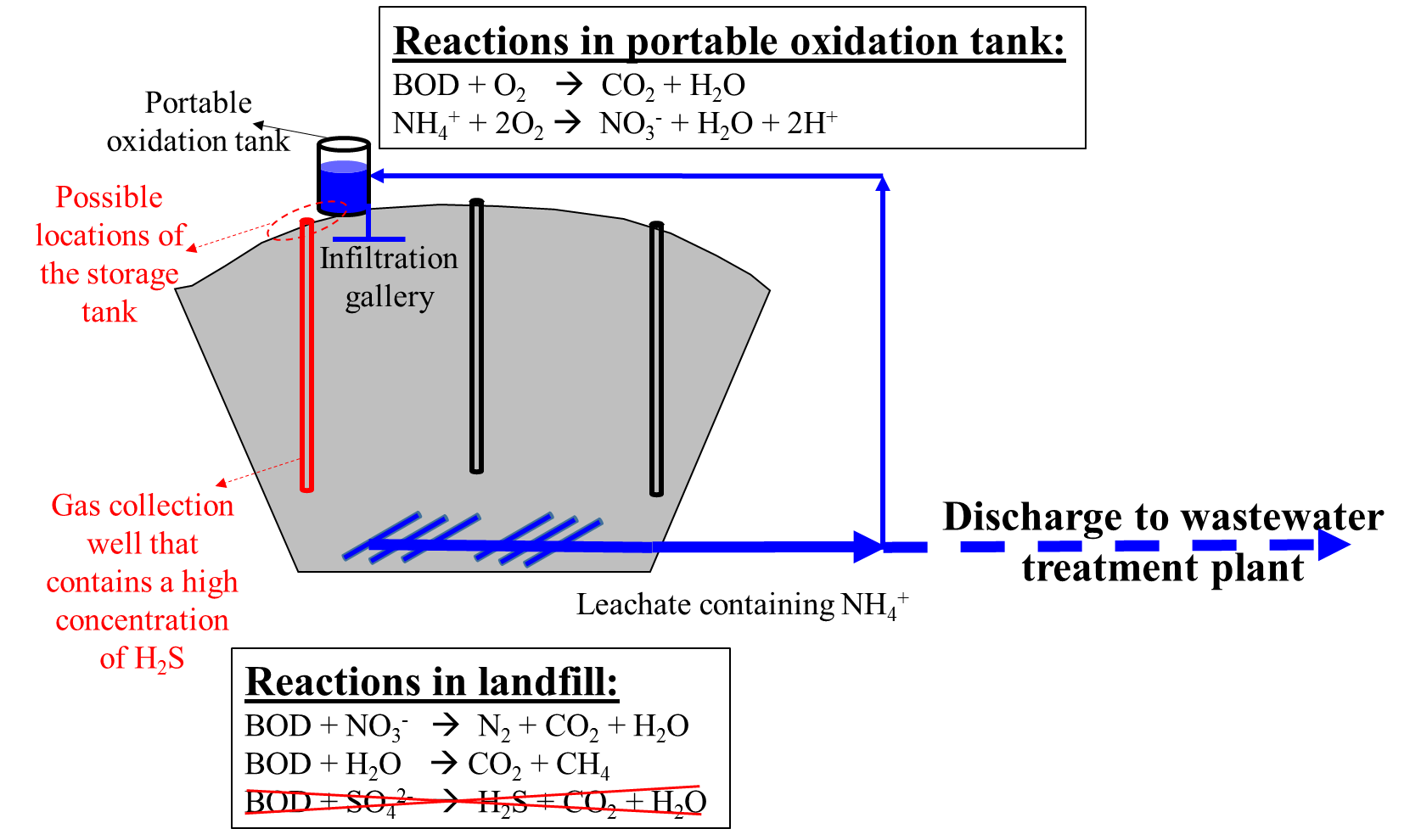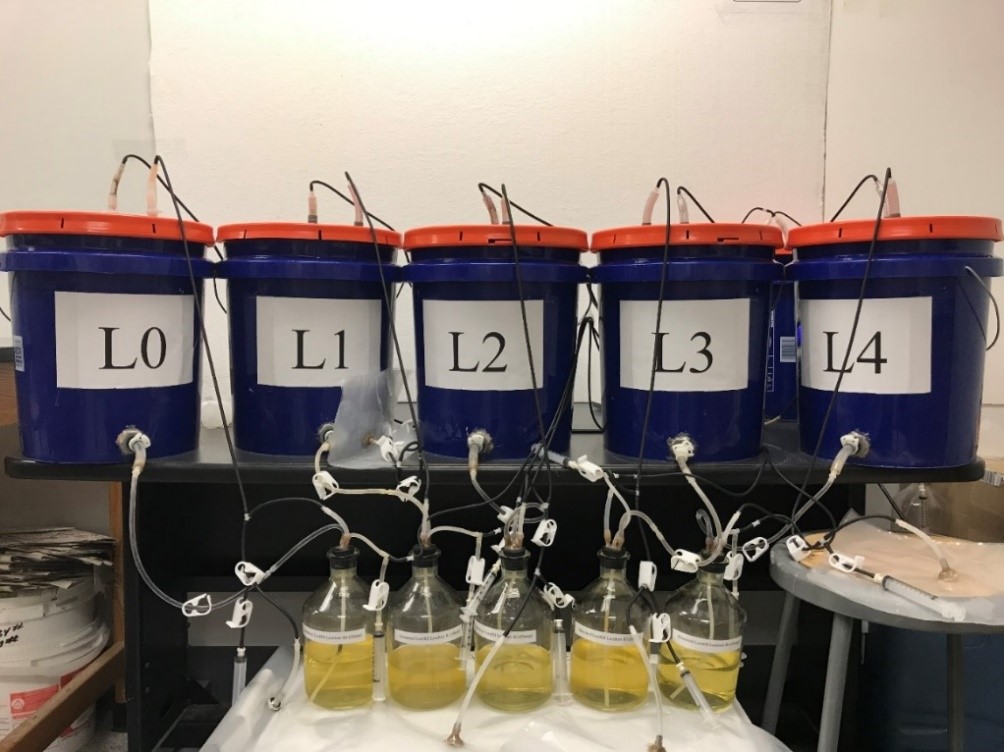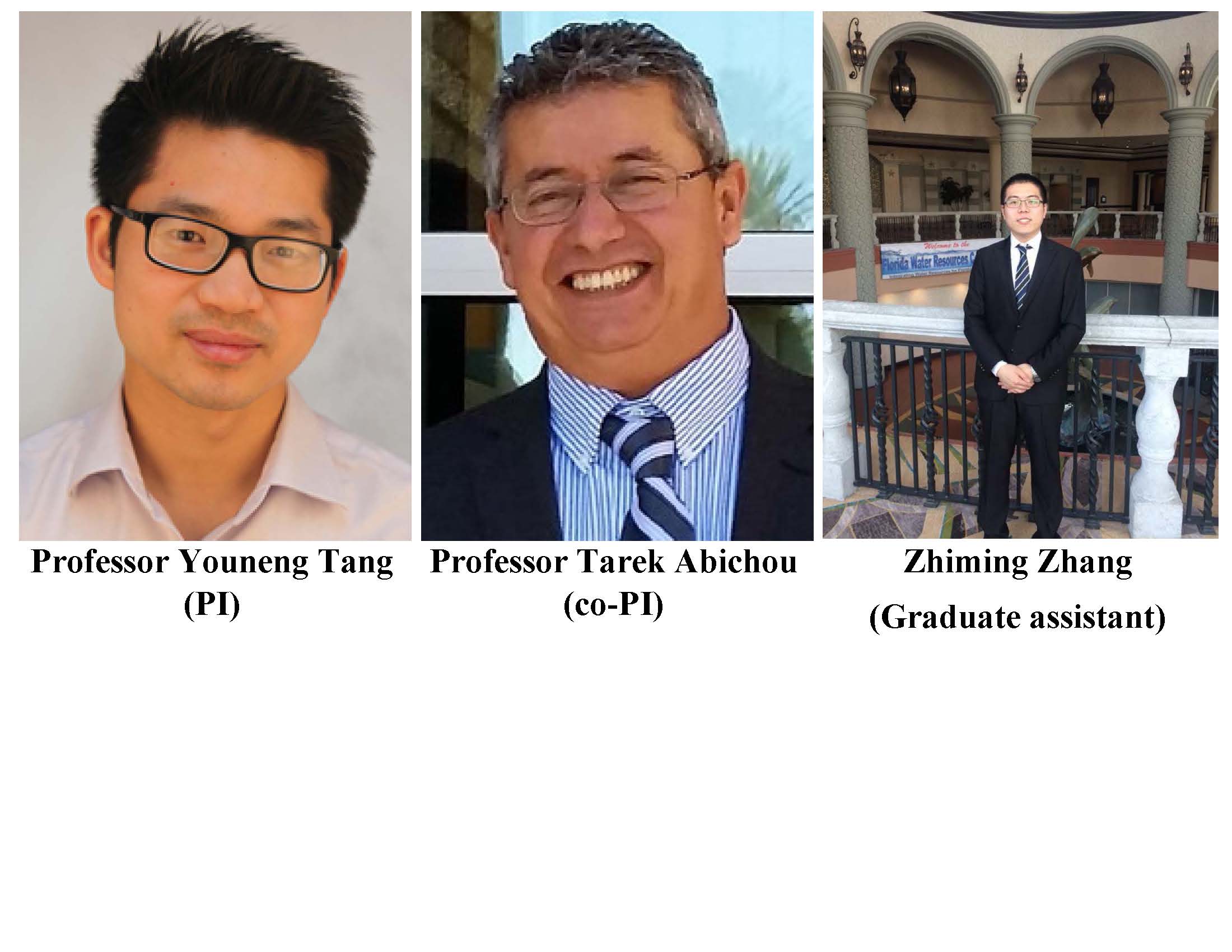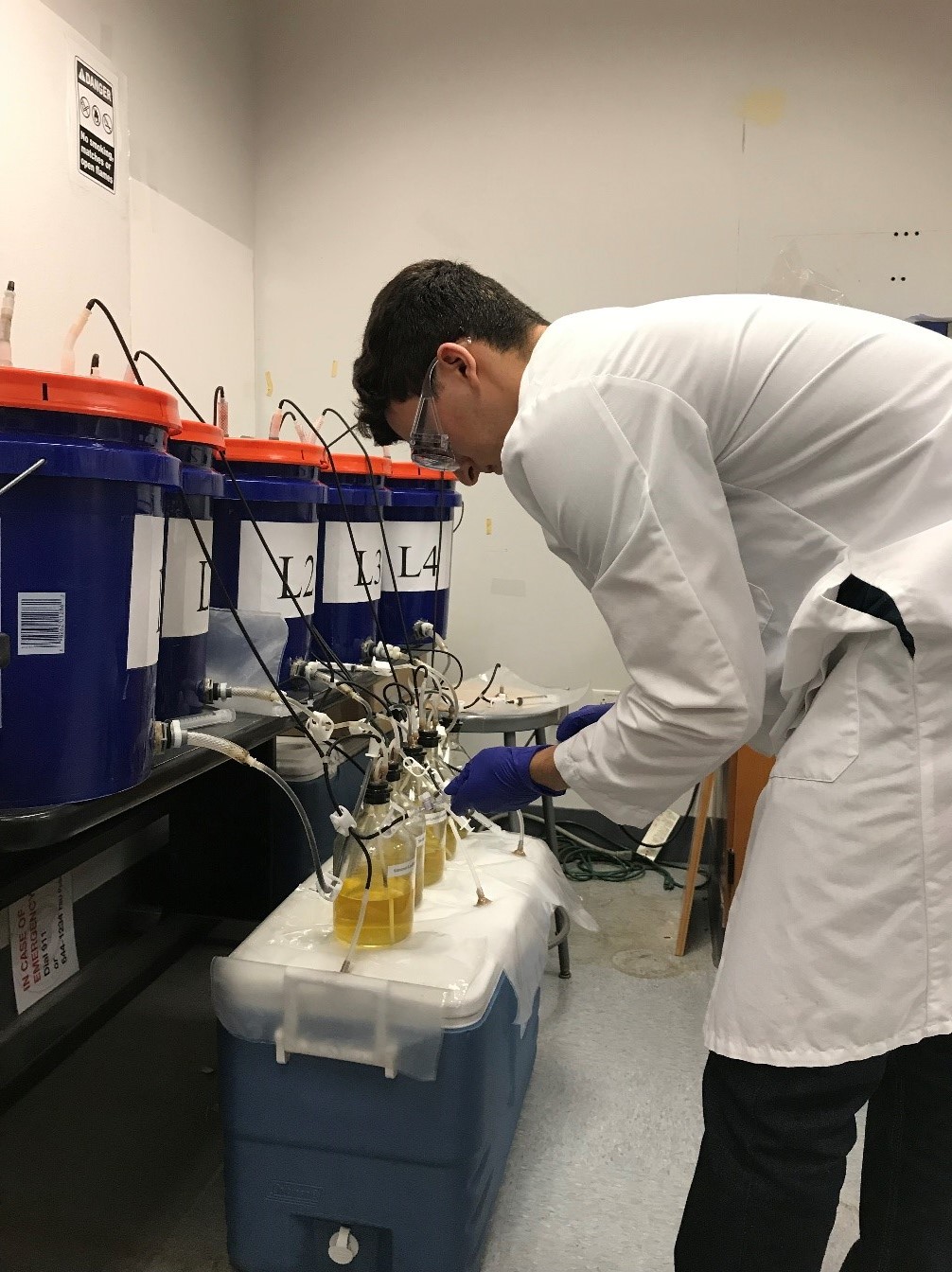PROJECT TITLE: Using Nitrate Produced From Leachate To Control Landfill Odors
Project Sponsor: Hinkley Center for Solid and Hazardous Waste Management
Project Duration: Sept. 01, 2018 - Aug. 31, 2019
Project Overview
One common and persisting problem with landfilling is odors. Hydrogen sulfide gas (H2S) is usually the major cause of the odors. A significant amount of H2S is generated when municipal solid waste (MSW, rich in organic matters) is co-disposed of with sulfate (SO42-)-laden wastes such as construction & demolition waste, fines from materials recovery facilities, ashes from coal combustion and MSW incineration. The odor problem is even worse in Florida because of frequent hurricanes and tropical storms, which usually leave millions of cubic yards of storm debris that contain a lot of organic matters and drywall (rich in gypsum, CaSO4) as people are usually not interested in separating garbage after a hurricane. Conventional odor-control products are designed to react, absorb, or mask odors; they deal with odors after generation. The PIs propose to use nitrate (NO3-) to inhibit H2S generation before odors become an operational issue, which is a novel and environmentally friendly approach. To make this approach more sustainable and economically feasible, the PIs further propose to convert ammonium (NH4+) in the leachate to nitrate and then apply the nitrate-containing leachate to the landfill to suppress H2S generation at the source.
 |
Six lab-scale landfills
 |
Project Team
From left to right: Dr. Youneng Tang (PI), Dr. Tarek Abichou (co-PI), Zhiming Zhang (Graduate assistant)
Bottom: Karam Eeso(Undergraduate assistant) is taking samples for methane measurement
 |
 |
Technical Awareness Group Meeting 1 (TAG-1, Nov. 26, 2018)
Download meeting minutes
Download presentation slides
Technical Awareness Group Meeting 2 (TAG-2, Aug. 12, 2019)
Download meeting minutes
Download presentation slides